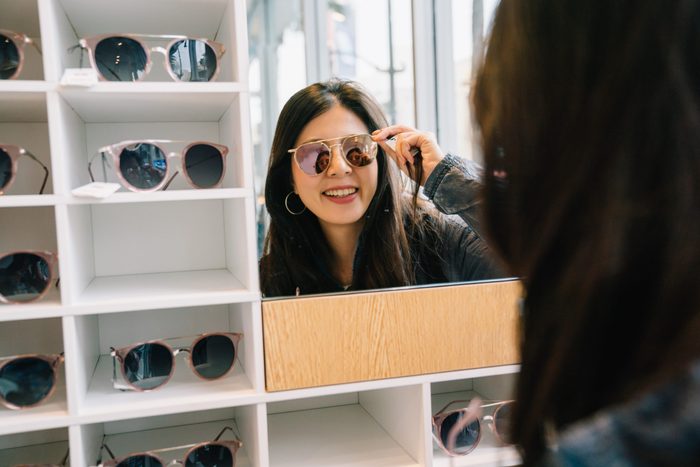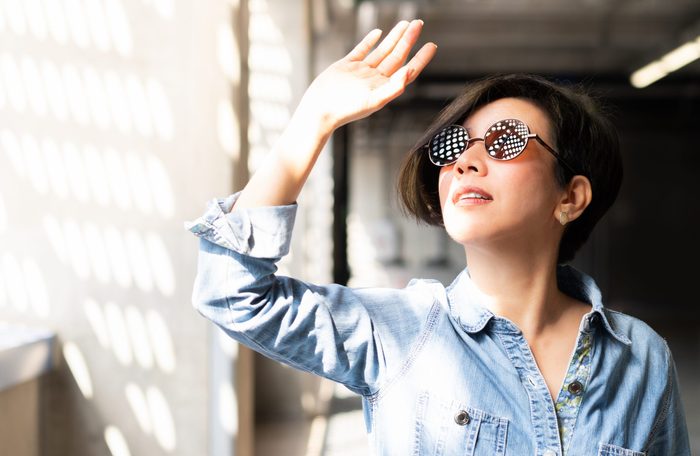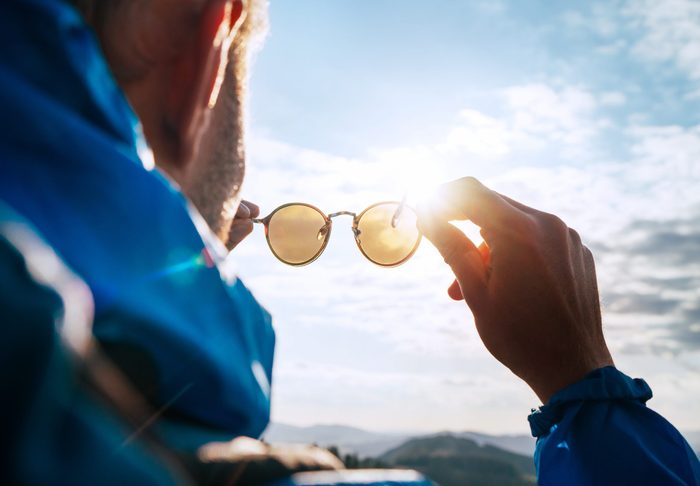
Are sunglasses good for your eyes?
When the sun comes out and any time you head outside, your sunglasses and sunscreen should go on. Both offer protection from the sun’s ultraviolet (UV) rays that can lead to premature skin aging, signs of sun damage, like wrinkles, and even eye problems. So, it’s important to be able to tell fact from fiction and dispel some of the most common sunglasses myths before you buy a pair of shades. We spoke with several eye doctors who offer tips about wearing sunglasses and protecting your eye health.

Myth: Expensive shades are better
A higher price tag doesn’t necessarily mean sunglasses will provide better protection against UVA and UVB rays. “Sunglasses, even at lower price points, can offer good protection,” says Inna Ozerov, MD, ophthalmologist and director of the Miami Eye Institute. “Before you even check the price tag, read the label. If they say they block 100 per cent of both UVA and UVB rays, it’s a go. If not, move on.”

Myth: Size doesn’t matter
As long as you cover your eyes, you’re safe, right? Not exactly. “Sunglasses with bigger lenses are better,” Dr. Ozerov says. “The pupils will naturally dilate when someone wears sunglasses to allow more light into the eyes. If the frame is not large enough, the UV light will get around the edges of the lens and have an easier time entering the eye when the pupil is dilated.”
Find out five sunscreen mistakes to avoid this summer.

Myth: Don’t worry about the scratches
Scratches on your lenses won’t harm your vision. However, they can tire your eyes as you strain to see through a defective lens, Dr. Ozerov says.
Check out these tips for dealing with tired, irritated eyes.

Myth: It’s important to choose the right colour lens
“Nonsense!” says Dr. Ozerov. “The colour of the lens you choose—grey or brown—is a personal preference and has no impact other than that.”
Fewer than one per cent of people can pass this colour test. Can you?

Myth: All sunglasses cut glare
Only polarized lenses block glare. “All light that bounces or reflects off a surface becomes polarized if it vibrates at a specific angle,” explains Barry Kay, optometric physician and owner of Hollywood Eyes in Hollywood, Florida. “A polarized lens is mounted at the proper angle in the frame to block this reflected light. The more reflective the surface, the more polarized light reaches our eye.” Kay says that most common sources of reflective surfaces are water, windows, and even other cars, and to a lesser extent cement and asphalt. “Remember that polarized light is different than UV light,” he adds. “Polarized lenses cut glare and improve contrast, but all good sun lenses protect against UV.”
Find out what it could mean if you develop a red spot on your eye.

Myth: Sunglasses can expire
It depends on which aspects of the shades you’re talking about. “In terms of UV protection—no,” Kay says. “No studies I’ve seen prove a reduction in the level of UV protection with wear and time.” Scratches, on the other hand, which accumulate inevitably the longer you wear them—or keep them rattling around in your glove compartment, will lower the quality of your vision.
Here are 12 signs you need to visit an eye doctor.

Myth: Cheap sunglasses are fine
Actually, even the cheapest shades block most of the harmful UV radiation, according to Kay. But that’s not the problem. “Poor quality plastic lenses distort our vision and can cause headaches,” she adds. “I always use prescription quality lenses even if the power is zero.”
Find out the most common types of headaches—and how to cure them.

Myth: Darker lenses are more protective
It seems like a darker shade would block more light, but that’s not the case. “The level of UV protection is not a factor of tint,” Kay explains. “It’s determined by either a lens treatment or the type of plastic polymer of the lens.”
Check out these eye care tips your optometrist wishes you knew.

Myth: All sunglasses protect against UVA/UVB light
Not all sunglasses have UV protection—some are strictly fashion accessories. “When purchasing sunglasses, always look for a label, sticker, or tag indicating UV protection,” advises Justin Bazan, doctor of optometry and owner of Park Slope Eye in Brooklyn, New York.
Here are seven signs you need new glasses (that have nothing to do with blurry vision).

Myth: You need shades only in summer
If you’ve ever been blinded by rays glinting off freshly powdered ski slopes, you know that sunlight in winter is just as strong as in summer. “It’s a common misconception that there’s less UV damage to the eyes during the colder months, and it’s not true,” Bazan says. “In winter, UV rays can reflect off snow and into the eyes. Sunglasses are key to eye protection, regardless of weather.”
Next, find out 30 everyday habits that can save your eyesight.